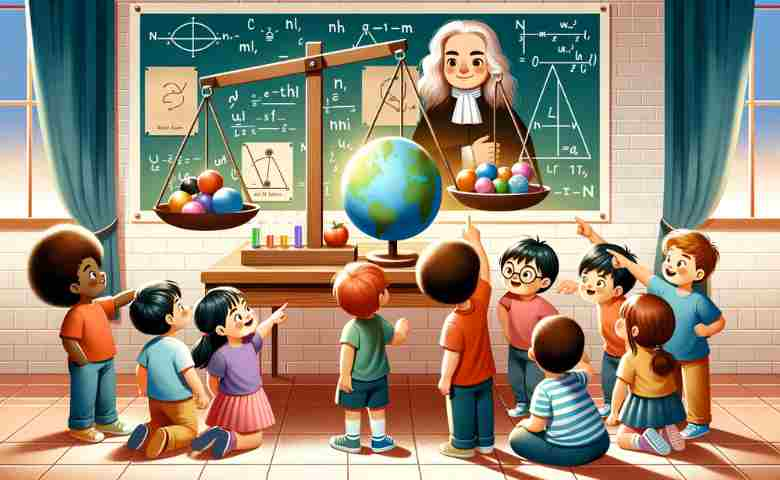Last Updated on January 24, 2024 by Admin
Hello young explorers! Today we’re going to dive into a super interesting topic: What is the SI (International System of Units) unit for weight?
Table of Contents
What is the SI unit for Weight?
First off, let’s start with a fun fact: Did you know that in the world of science, ‘weight’ and ‘mass’ are like cousins? They’re related but not the same thing. People often mix them up in daily conversations, but they are different in cool ways.
What is Mass?
- Mass is like how much “stuff” is in something. Imagine you have a big chocolate bar. The mass is all the chocolate in that bar. Yum! Scientists measure this in ‘kilograms’ (kg). The best part? No matter where you go – be it the Moon, Mars, or even a faraway galaxy – your chocolate bar’s mass stays the same.
What is Weight?
- Now, let’s talk about Weight. This is a bit like a secret superpower that Earth (and other planets) have. It’s the pull that Earth has on your chocolate bar, or anything else. This pull is called ‘gravity.’ Weight can change depending on where you are in the universe because the pull of gravity changes. On the Moon, you’d feel lighter! Weight is measured in ‘newtons’ (N), named after a smart guy named Isaac Newton.
The Cool Equation:
- There’s a neat formula that connects mass and weight:
Weight=Mass×Gravity
In this, gravity is like the Earth’s pulling power. On Earth, gravity is about 9.81 meters per second squared. So, if your chocolate bar is 1 kilogram, on Earth, it would weigh about 9.81 newtons. Isn’t that neat?
Gravity: Earth’s Invisible Superpower
- Think of Gravity as Earth’s invisible force. It’s like a superpower that keeps us from floating away into space. Different planets have different strengths of gravity. That’s why if you were to stand on the Moon, you would feel much lighter!
The Story of the Newton
- The unit for weight, the Newton (N), is named after Sir Isaac Newton. He was a super smart scientist who discovered the laws of motion and gravity. So, when we talk about newtons, we are giving a nod to his amazing discoveries!
Everyday Examples of Weight vs. Mass
- Let’s make it more real with examples. A bag of apples might have a mass of 2 kilograms. This mass doesn’t change whether the bag is in your kitchen or on the Moon. However, its weight would be different because of the change in gravity. On Earth, it might weigh around 19.62 newtons, but on the Moon, it would weigh much less!
How Scientists Use Mass and Weight
- In science, especially in space missions, understanding the difference between mass and weight is crucial. Astronauts and satellites experience less gravity in space, so scientists have to calculate their weight differently than on Earth.
Why Do We Feel Heavier or Lighter Sometimes?
- Ever wondered why you feel lighter in water or heavier after jumping on a trampoline? This is all about weight and how forces act on your body. It’s not that your mass changes, but the forces acting on you change.
Fun Experiments to Understand Mass and Weight
- You can do simple experiments to understand these concepts. Try weighing yourself on a scale (that’s your weight). Then, learn about how scales convert weight to mass. You can also use a spring scale to see how weight changes with different amounts of pull.
The Importance of Accurate Measurements
- In science, and in many parts of life, like cooking or building, measuring mass and weight accurately is super important. That’s why scientists have defined standards like kilograms and newtons.
To Sum It Up:
- Mass is the amount of stuff in something (measured in kilograms).
- Weight is how much the Earth (or another planet) pulls on that stuff (measured in newtons).
- Even though we often talk about our weight in kilograms, in the world of science, we should really use newtons!
I hope this clears up the mystery of weight and mass. Remember, science is all about discovering and asking questions, so never stop being curious!
And there you have it, future scientists! A bigger picture of mass, weight, gravity, and how they play a huge role in our universe. Keep exploring, questioning, and learning!
Related Posts:
- Civil Engineering Career Suitability Test
- Top 10 Construction Games, Construction Simulator Games In 2024
- Lean Construction: Everything you need to know about
- How To Reduce Heavy Equipment Transportation Costs


